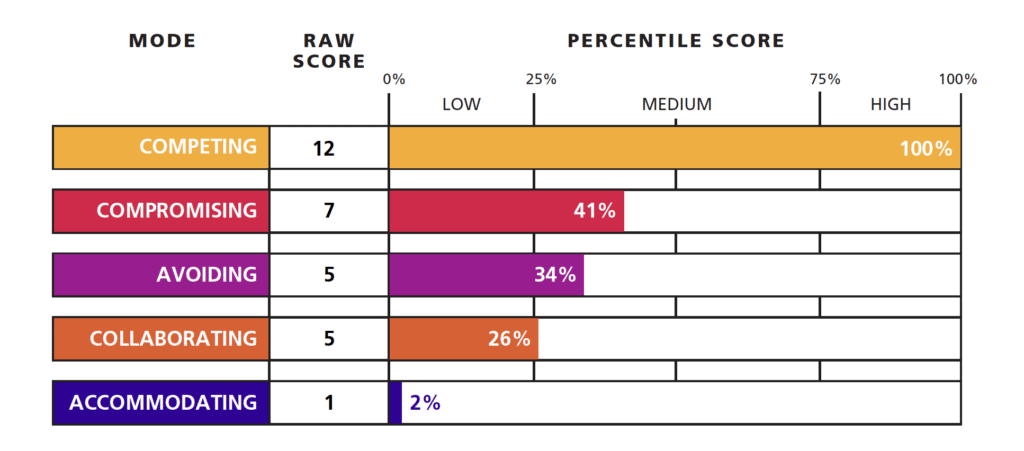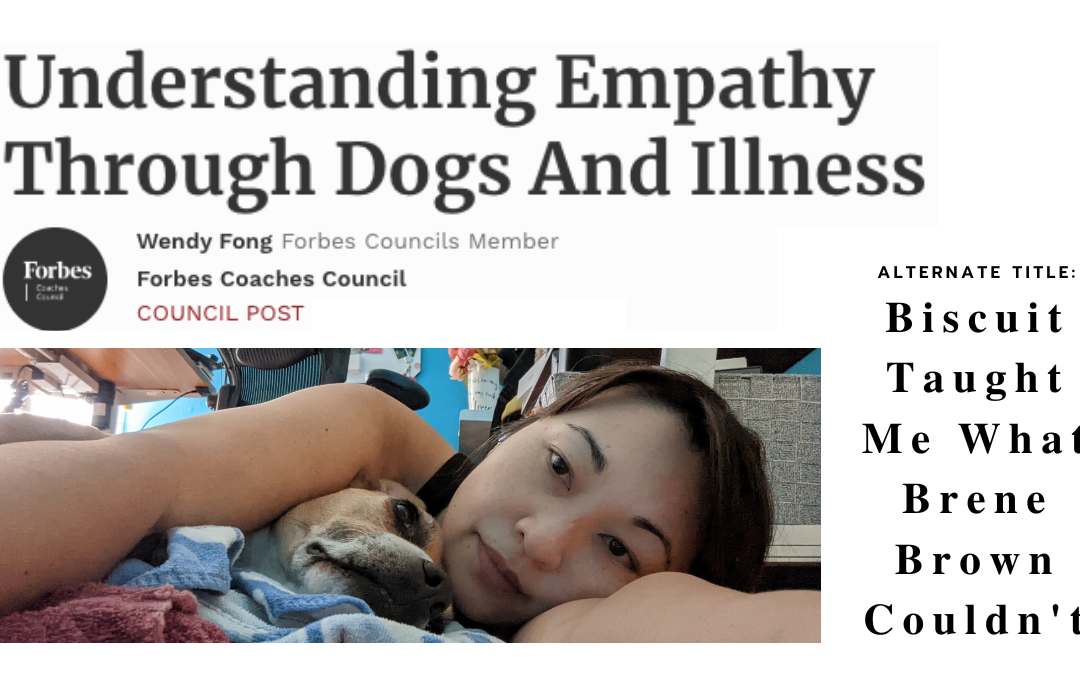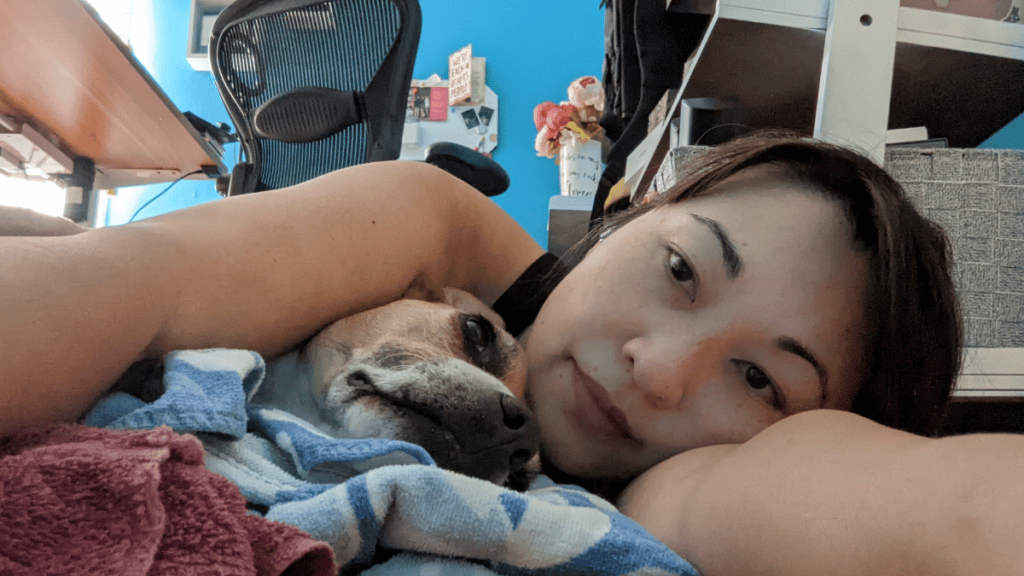This blog has been reposted from our article on the Forbes | Coaches Council. Check out the original article here!
Do you have an overused strength? Mine is competing, 100%. No, not 100% agree, but when I took an assessment over a decade ago when I started my MBA about how I approach conflict, I was 100% ‘competing’.

“Your profile shows that you scored highest on competing, where your score of 12 gave you a percentile score of 100. This means you scored higher than 100 percent of the people in the sample competing. In contrast, you scored lowest on accommodating, where your percentile score is comparable to the lowest scores on this conflict mode in the sample.“
Once I gained that awareness, I started to change my behavior.
Although I don’t have the updated report to prove it, I adapted my conflict style over the two years I was in school. I believe some of my classmates will attest to that. Still, as someone who is well-versed in persuasion, I take pride in being able to talk myself out of situations (like a traffic ticket) or talk others into them (like giving me an upgraded hotel room).
These examples may seem beneficial during those circumstances, but I have overused this strength in many ways that are unhealthy, specifically when it comes to my son. I always tried to talk him out of a funk, into a better mood, into better decisions, you name it. I knew this deprived him of crucial development, so I set out to change.
In her book The Gifts of Imperfect Parenting: Raising Children with Courage, Compassion, and Connection, Brené Brown writes, “Compassion is knowing our darkness enough so we can sit in the dark with others.” To explore further, I watched this great animation: Brené Brown On Empathy.
After learning more about empathy, I tried to sit in the dark with my son when he was upset. Whether it was over not doing well at a track meet or witnessing something that was so utterly unfair at school, I did my best to listen and understand his thoughts. But at some point, because I didn’t perceive just sitting in the darkness as winning, I needed movement and my overused strength kicked in.
It wasn’t until our dog, Biscuit, got really sick that I truly learned to sit in the dark.
Illness is no stranger to Biscuit, who ate a poisonous plant and ended up in the animal hospital back in January. Unrelated to that, she also gets seizures about once a month.
A few days after we returned from a trip, she seemed lethargic. The next day, she refused to eat, which is when I knew something was wrong. We took her to our vet that same day, and they referred us to the animal hospital, which didn’t have availability for another few hours, so I brought her home.
While we waited for the emergency vet to open up, Biscuit had a seizure. Typically, after seizures she would be disoriented and walk all around the house, bumping into walls. This time, she didn’t even get up. She just lay there, motionless.
I couldn’t talk her out of this. So I lay on the ground with her because that is all I could do. That is how I finally understood what Brené Brown meant when she said we have to sit in the darkness.
Don’t worry—this story has a happy ending.
Oddly enough, after blood tests, x-rays and observations, they couldn’t find anything wrong with Biscuit. She felt much better after getting some fluids and meds.
In times of stress or crisis, overused strengths tend to take over on autopilot. Luckily, competing is a great one to have for a crisis. According to Dale Eilerman, a competing style can be effective during certain difficult situations, like in a crisis, when decisions need to be made immediately. Cons: A competitive style can be perceived as aggressive, confrontational, and uncooperative.
I use these self-coaching tips to actively work on challenging my competitive style.
Give them a shot if you have the same competing tendencies that I do.
- Actively seek input from multiple sources.
- Practice active listening and allow people to express their opinions or ideas.
- Think before you speak; think of how your message may be received.

Sometimes I’m successful and sometimes I’m not, but all I can do is work toward being a little better every day. The competitiveness I have is an ineffective way of combatting the struggles in my life and in my business. I am so grateful I was able to learn from Biscuit.
Take a minute to self-evaluate. Be vulnerable. Think and feel. What are some of your overused strengths? Perhaps it’s accommodating, in which case, your self-coaching question should focus on how you can speak up and stand up for what is fair (without feeling like your stomach is in knots). Shifting your mindset can help you face challenges or hardships, in both life and business, better than you ever had before.
Want more content like this? Check out our other Forbes | Coaches Council Content here!
Take a quick peek at another blog about challenges resolved through a shifting in mindset, The Higher Standard of ‘Possible’ by Megan Chavez.


